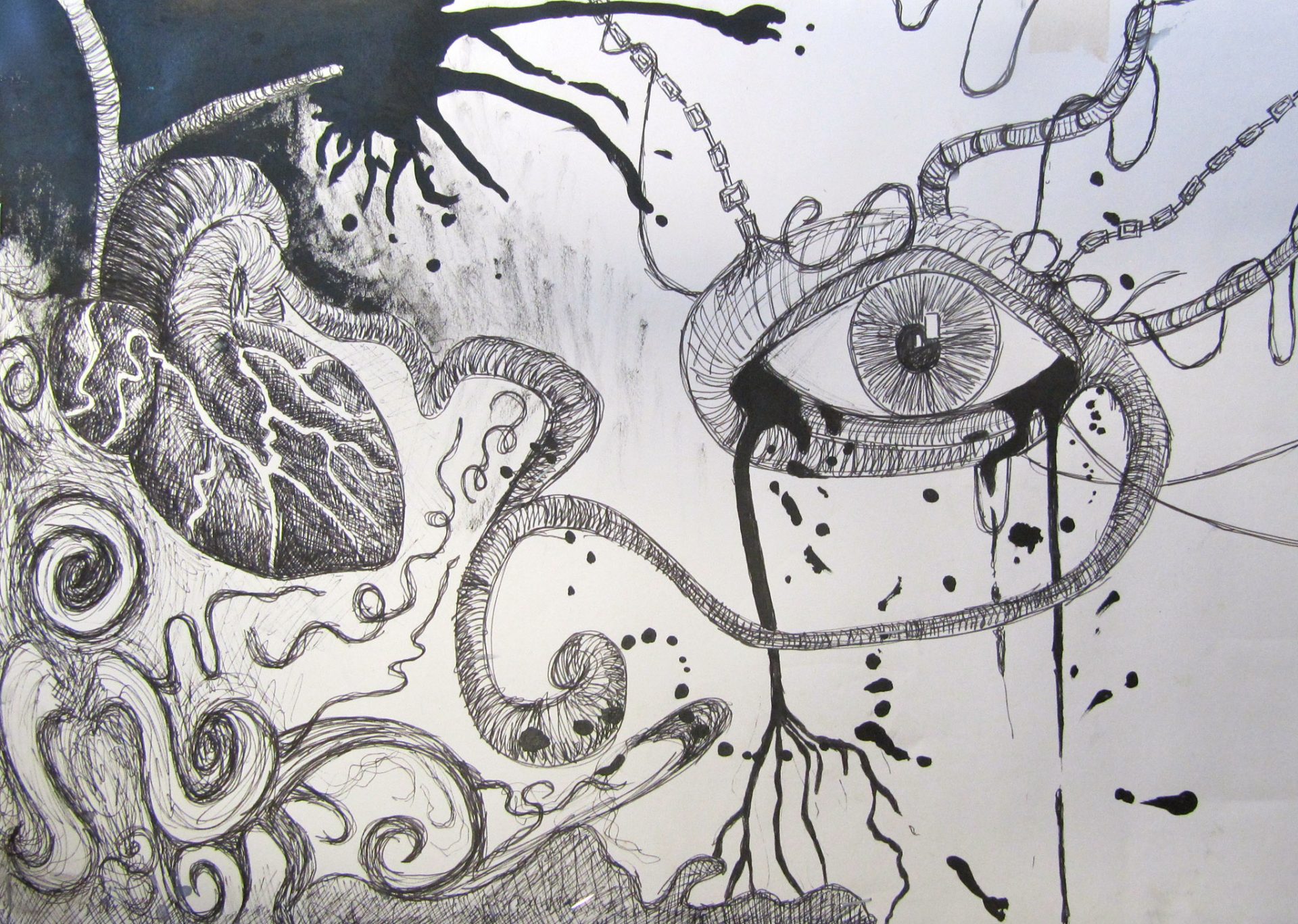Sweat, Blood and Tears
When I was younger I used to look to drawing and other artistic mediums as an outlet, but as I got older I felt I didn’t have the time for it anymore. A lot of the focus of my research has been on identifying when we are stressed and finding ways to manage that. Therefore, I decided to use this as an opportunity to engage in some art myself to remind myself of how I could use this as a coping mechanism when I feel overwhelmed with work. The concept of mind-body medicine and the idea of achieving resilience through supporting and connecting all parts of a very complex system, is what has struck me the most on Whole Person Care. I feel like I have a better understanding of my body than most, given that I have to control my blood glucose levels myself, I can see the impact that different activities, foods and emotions can have, whereas any non-diabetic would have an effective normative loop to counteract all these other factors that usually we don’t even consider. When I first read about psychoneuroimmunology in the BMJ, I was struck with incredulity that I had not heard much said about it before, because when I look at myself and my own condition, it seems perfectly obvious. I can see how stress affects my blood sugar levels and we all know that stable blood sugar levels are a key part of a correctly functioning system. So why had I not considered the effect of stress on other health complications- even conditions like cancer, HIV and incontinence- before? This led me to create this piece of work which I’ve called Sweat, Blood and Tears. It is inspired by the concept of a connected system but of things we don’t necessarily think of at first as being linked. On looking at the piece it may look disjointed, why would the heart be connected to the eye? I’ve tried to link everything together with vessels of the heart connected to the eye, sweat creeping up from the bottom left and curling round the heart and then with strings and chains heading out of the picture symbolising links to everything else that is important in this system. Sweat, blood and tears might not mix and originate from completely different parts of the body but they can all be linked by the fact that their presence increases when you are in a stressful emotional state: sweat is secreted, blood flow is increased and (if you are anything like me) tears flow. I will now definitely have a greater consideration for mind-body medicine as a doctor but I will also look to integrate the principles I have discussed here into my daily life in order to really try to master resilient thinking.

Fine bit of writing Emma and a deliciously weird drawing. Thanks!